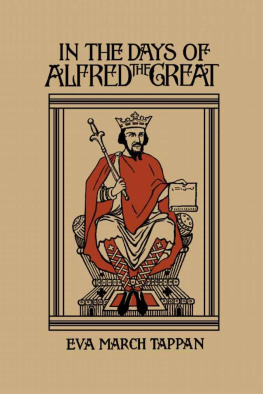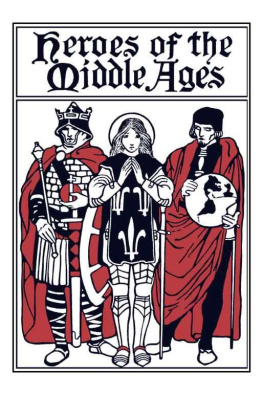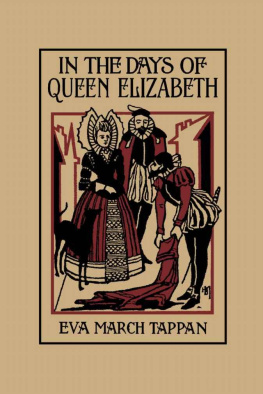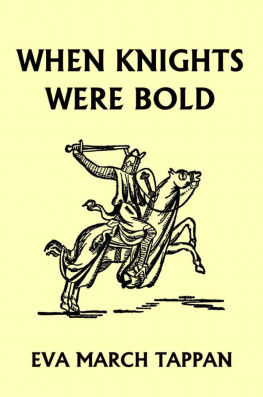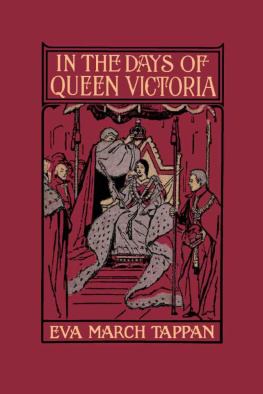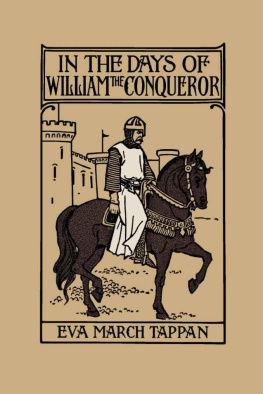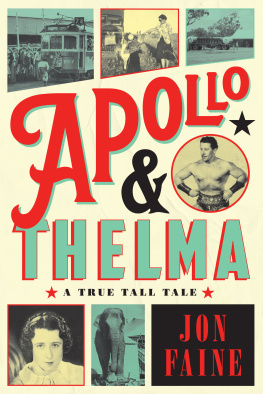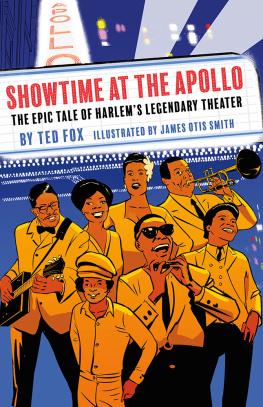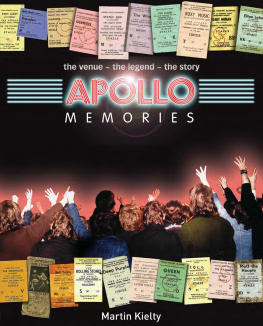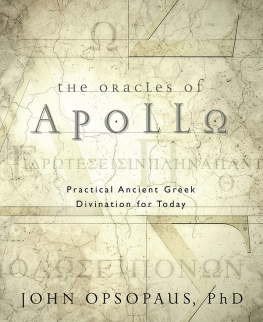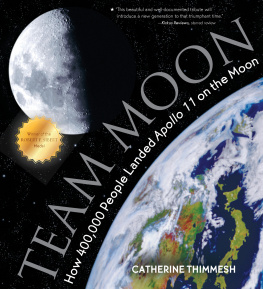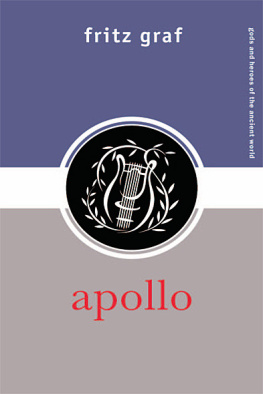The Story of the Greek People
by
Eva March Tappan
Copyright 2013 Read Books Ltd.
This book is copyright and may not be
reproduced or copied in any way without
the express permission of the publisher in writing
British Library Cataloguing-in-Publication Data
A catalogue record for this book is available from the British Library
Contents
Eva March Tappan
Eva March Tappan was born on 26th December 1854 in Blackstone, Massachusetts, America. She is well known as a factual as well as fictional writer, but spent her early career as a teacher. Tappan was the only child of Reverend Edmund March Tappan and Lucretia Loge, and received her education at the esteemed Vassar College. This was a private coeducational liberal arts college, in the town of Poughkeepsie, New York, from which she graduated in 1875. Here, Tappan was a member of Phi Beta Kappa, the oldest honour society for the liberal arts and sciences, widely considered as the nations most prestigious society. She also edited the Vassar Miscellany, a college publication.
After leaving her early education, Tappan began teaching at Wheaton College, one of the oldest institutions of higher education for women in the United States, founded in 1834 and based in Norton, Massachusetts. She taught Latin and German here, from 1875 until 1880, before moving on to the Raymond Academy in Camden, New Jersey where she was associate Principal until 1894. Tappan also received a graduate degree in English Literature from the University of Pennsylvania. This allowed her to pursue her first love, that of reading and writing, and she taught as head of the English department at the English High School at Worcester, Massachusetts.
It was only after this date that Tappan began her literary career, writing about famous characters in history, often aimed at educating children in important historical themes and epochs. Some of her better known works include, In the Days of William the Conqueror (1901) and In the Days of Queen Elizabeth (1902), The Out-of-Door Book (1907), When Knights Were Bold (1911) and The Little Book of the Flag (1917). Tappan never married, being a happy singleton, and died on 29th January 1930, aged seventy-five.
A READING FROM HOMER.
PREFACE
THE plan of this book is not only to present a simple outline of the chief events in the history of ancient Greece, but also to picture the customs of the people, their manner of living and thinking and feeling. So far as the size and scope of the little volume will permit, the names of those who were masters in art and literature are introduced, not in separate chapters as mere adjuncts to political history, but in their natural connection with the annals of their times, and ever in accordance with Plutarchs dictum, Often an action of small note, a short saying or a jest, shall distinguish a persons real character more than the greatest sieges or the most important battles.
In treating of the wars of Greece, I have followed their course as briefly as possible, and have given the space often allotted to details of battles to characteristic stories of some of the famous leaders, or a description of some one military operation that illustrates the difference between ancient and modern ways of conducting such affairs. In short, I have used the wars to illustrate the people, and not the people to display the minuti of the wars.
The illustrations for the book are intended to put the reader into the spirit of the Greek world, and to aid the imagination in interpreting the text. They have been taken from a great variety of sources, in the majority of cases representing Greek art in the form of architecture, statuary, bas-reliefs, vase-paintings, and coins, which reveal something of the artistic genius and the wonderful versatility of this people.
The never-failing fascination of the study of the Greeks, of their brilliancy of intellect, their love of country, their versatility, even their very faults, must seize upon one who becomes familiar with them in ever so slight a degree. If this little book affords as much pleasure to the reader as its preparation has given to the writer, its existence will be justified.
EVA MARCH TAPPAN
IMPORTANT DATES IN GREEK HISTORY
B.C.
776, Beginning of First Olympiad.
621, Draco reformed the Athenian laws.
594, Solon reformed the Athenian laws.
509, Clisthenes reformed the Athenian laws.
500-494, Revolt of the Ionians.
490, Battle of Marathon (Beginning of Persian War).
480, Battles of Thermopylae and Salamis.
479, Battles of Plata and Mycale (End of Persian War).
477, The Delian League was formed.
445, Peace of Pericles gave quiet to Greece.
445-431, Age of Pericles.
421, Peace of Nicias (End of first phase of Peloponnesian War).
415-413, Sicilian Expedition.
405, Battle of gospotami.
404, Fall of Athens (End of Peloponnesian War).
401-400, Retreat of the 10,000 in Persian.
387, Peace of Antalcidas ended Corinthian War.
371, Battle of Leuctra began the downfall of Sparta.
362, Death of Epaminondas ended supremacy of Thebes.
338, Battle of Chronea brought all Greece into power of Philip.
334, Alexander crossed the Hellespont to invade Persia.
323, Death of Alexander and the division of his empire.
IN THE DAYS OF MYTHS
THERE was one thing that must have been especially pleasant for the boys and girls who lived in Greece nearly three thousand years ago. It was that so many of their questions were answered by stories. For instance, if a boy asked the name of a mountain that rose far to the northward, his mother would reply, That is Mount Olympus. On its summit is the most beautiful palace you can imagine. It is made of clouds, white and rosy and golden, and it is the home of Zeus, King of the Gods. He often calls the other gods to come to him; and then they journey from the earth, the water, and the underworld, and meet in the great hall of the palace. There they feast upon ambrosia and nectar, the Muses sing, and Apollo plays on his lyre. By and by, when the sun sets, they pass through the gates of cloud and return to their homes. The sun is a splendid golden chariot. Apollo drives it up the sky every morning and down again every afternoon. It is all ablaze with diamonds, and that is why it dazzles your eyes to look at it.

ZEUS, KING OF THE GODS
(IN THE VATICAN GALLERY AT ROME)
I should like to drive it, perhaps the little Greek boy would say; and then his mother would tell him of the time when a boy once tried to drive it, and of what happened to him.
APOLLO IN HIS SUN-CHARIOT.
He was called the son of Apollo, the story went, and his name was Phathon. One day a playmate was angry with him and cried out, You are nobody! You are not Apollos son! Phathon did not say a word in reply, but went straight to far-away India, and walked boldly into the palace of Apollo. The ceilings were of ivory and the doors of silver. At the farther end of the long room stood a throne, which glittered and gleamed and shone like sunbeams sparkling on the water. On this throne sat the Sun-God himself. He wore a crimson robe, and on his head was a crown made of long rays of golden light that flashed and blazed even more brilliantly than the sun at noonday. Phathon walked up the room and stood before the throne. Apollo looked kindly upon him and said, Tell me who you are and why you have sought me. Then the boy told the god about his playmates declaring that he was no child of Apollo. And I have come, he said, to beg that if I really am your son, you will give me some proof.


